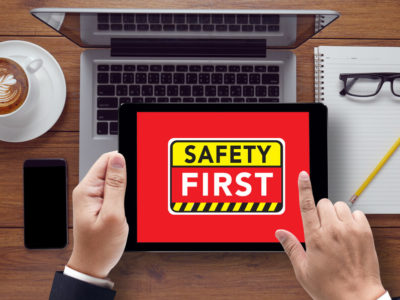Often as a starting point for a workplace wellness program, a Health Risk Assessment (“HRA”) is a comprehensive questionnaire designed to identify health risks of employees.
Ideally it then dovetails into a broader strategy of engaging employees in their own wellness choices, and assist them in making healthful changes that impact their health and prevent chronic disease.
Designed to identify current behaviors that may cause costly health problems in the future, HRA questionnaires asks about nutrition practices, height and weight, physical activity and exercise habits, prescription medications, recreational drug use, sleep habits, family health history, personal stress perceptions, smoking history and alcohol consumption, work satisfaction, willingness to make lifestyle changes, cancer screenings, hearing and vision impairment, flu vaccinations, and more.
But how genuinely effective are HRA’s as a tool for corporate wellness, and engaging employees in their own health and wellness choices?
How HRA’s are delivered, and the perception of the employees are both key factors.
Privacy Concerns
First and foremost is the warranted concern of privacy, especially when working with a third party vendor administering the questionnaire. How can employees know their information is confidential and safe?
The accuracy of an HRA is dependent on the honesty of the employee, and herein can lie the problem. Does an HRA give the whole story? Not surprisingly personal questions could very well cause some employees to balk and not answer truthfully. Also worrisome to many employees is where the information gets stored, and the concern that their personal information will be seen by their boss, or live online somewhere, beyond their control to keep private.
A recent article on the Time Inc. Network[1] addressed the concern of privacy with workplace health risk assessments, by stating;
“Under HIPAA, the Americans with Disabilities Act, and state privacy laws, employers are prohibited from using health risk assessments for any reason other than for wellness programs … and seeing that information could expose the company to a lawsuit if you’re fired or disciplined. Most employers don’t want to see that information as much as employees don’t want to give it to them. So employers usually hire a third party to administer the questionnaires. If that’s a medical provider, that firm is subject to additional privacy rules.”
The corporate leadership team needs to communicate with employees the privacy policies they adhere to, in order to gain their trust, as well as how they intend to use the very personal information given.
HRA’s Are Only One Tool in a Broader Wellness Program
After HRA’s are administered, what’s next?
If organizations only use HRA’s as their sole corporate wellness strategy, then employees will likely feel they are the only ones responsible for their wellness goals, when in reality, corporate wellness is a two-way street. Read my recent blog, “Avoid This Corporate Wellness Mistake”
An article on attentivehealth.com[2] entitled “The Truth About Health Risk Assessments” shines a light on this issue, and the author states… “The truth is, health risk assessments alone are NOT a great awareness tool. In order to truly function in this way, more personal guidance needs to be offered to the individual as a follow-up, including time to reflect on the results and plan specific next steps…”
An HRA on its own rarely inspires employees to change unhealthy habits. Why is that?
They Don’t Address the Root Cause of Unhealthy Behavior
As a list of symptoms and behavioral results, (such as weight or sleep problems or chronic stress), HRA’s don’t get to the root cause of what is going on, and ask only surface level questions. It’s important to combine HRA’s with other corporate wellness programs that helps address the real reason for any health issue.
HRA results can also be misleading, as sited in the same article by attentivehealth.com…. “For example, asking people about alcohol servings in a multi-choice format most often resulted in people choosing a selection ‘somewhere in the middle’ rather than answering more honestly. Worse: when presented with the results of their survey with alcohol consumption listed as moderate, these individuals tended to believe their consumption was appropriate, even if on some level they knew that they had not answered the question completely truthfully.”
An HRA on its own does not identify root causes of health issues.
Not the Be-All End-All
With all of this in mind, I believe Health Risk Assessments that are properly communicated, conducted and evaluated, can be a tool that helps provide direction to create a customized corporate wellness program. It shouldn’t be seen as the final tool to somehow inspire healthy change in any organizations’ employees.
The Best Approach
HRA’s need to be handled with the utmost care, and careful consideration of the mode of delivery, reassuring employee privacy, and confidence in the vendor who is administering the HRA. It’s wise to use a partner that your employees will trust and can build a relationship with.
I recommend selecting an HRA tool that is HIPAA compliant and gives you a summarization of the data instead of the individual data. This helps avoid any concerns regarding what your company will use this information for so that it will put your employee’s minds at ease.
Also, work with a consultant that will show you and your employees sample reports that will be given throughout the process. This can go a long way too to make everyone feel more comfortable.
Overall, investigate your HRA options and be transparent with your employees from the start.
You May Also Like…





